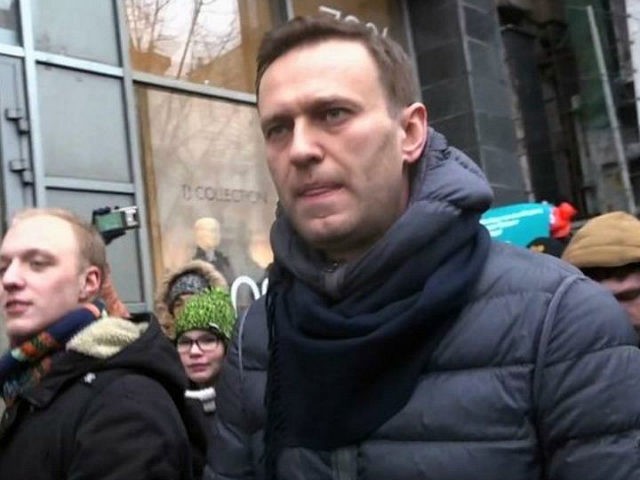The Russian Foreign Ministry issued a statement on Wednesday that accused the German government of “stonewalling” on the health of Alexei Navalny, the Russian opposition leader poisoned with Novichok nerve agent according to German doctors — a chemical weapon Russia has employed in previous assassination attempts.
The Foreign Ministry said Germany is running an information operation to set the Russians up for more sanctions, as related by Russia’s state TASS news agency:
“Amid the German authorities’ unconstructive approach, unfounded attacks against Russia continue,” the ministry stated. “A massive misinformation campaign has been launched that clearly shows that its initiators see the key task not in taking care about Navalny’s health and establishing the real reasons for his hospitalization, but in mobilizing the sanctions sentiment,” it said.
The ministry noted that Russia had been demanding that Germany provide data on Navalny’s medical examination, including on the results of biochemical tests in accordance with the August 27 official request by the Russian Prosecutor General’s Office. “Despite all our requests, Berlin did not consider it possible to react swiftly and constructively,” it stressed.
“The lack of the above mentioned information does not allow Russian law enforcement bodies to use all necessary procedural mechanisms for establishing the circumstances of the incident. Meanwhile, the frenzy around this case is only growing,” the statement said.
The Russians claimed their doctors are eager to discuss Navalny’s condition and present the data they compiled while he spent his first few comatose days in a Siberian hospital, but “the German side has been stonewalling this process.”
The Russian Foreign Ministry also announced on Wednesday that it has summoned the German ambassador to protest “unfounded accusations and ultimatums against Russia” and the “obvious use” of Navalny’s plight by the Germans as “a pretext to discredit our country.”
The Russians threatened that if Germany does not provide all of the requested information on Navalny’s condition, the Kremlin will take it as a “gross hostile provocation” that will be “fraught with consequences for Russian-German relations, as well as a serious complication of the international situation.”
Russia made these threats a day after unknown masked assailants attacked Navalny’s office in Novosibirsk, Siberia, with “a yellow liquid with a strong pungent chemical smell.” Three volunteers hospitalized after the attack complained of feeling “sick and dizzy,” with “convulsions and inability to breathe,” according to their project manager. The incident occurred in broad daylight and was recorded by security cameras.
The Group of Seven nations (G7), including Germany and the United States, issued a joint statement on Tuesday condemning “in the strongest possible terms” the “confirmed poisoning” of Navalny.
The G7 foreign ministers said they were satisfied with the evidence presented by Germany that Navalny was attacked with Novichok, “a substance developed by Russia.”
“Any use of chemical weapons, anywhere, anytime, by anybody, under any circumstances whatsoever, is unacceptable and contravenes the international norms prohibiting the use of such weapons,” the G7 noted.
“We will continue to monitor closely how Russia responds to international calls for an explanation of the hideous poisoning of Mr. Navalny,” the statement said.
The United Nations and NATO have also called on Russia to cooperate with a thorough investigation of Navanly’s poisoning. The German government said that it will not give Navalny’s test results directly to Moscow, but is willing to present the data to the Organization for the Prohibition of Chemical Weapons (OPCW).
Russia’s belligerence over the Navalny diagnosis is probably related to the fate of the Nord Stream 2 pipeline, a controversial deal between Germany and Russia that the former is considering scrapping due to the poisoning of the Russian opposition leader. German Foreign Minister Heiko Maas explicitly suggested the Germans might “change our position on Nord Stream 2” this week, in addition to possibly leveling other sanctions at Moscow.
Navalny, currently being treated at the Charite hospital in Berlin, emerged from his coma on Monday and was described as “responsive,” although he may suffer prolonged effects from his exposure to what German doctors concluded was a military-grade nerve agent.

COMMENTS
Please let us know if you're having issues with commenting.